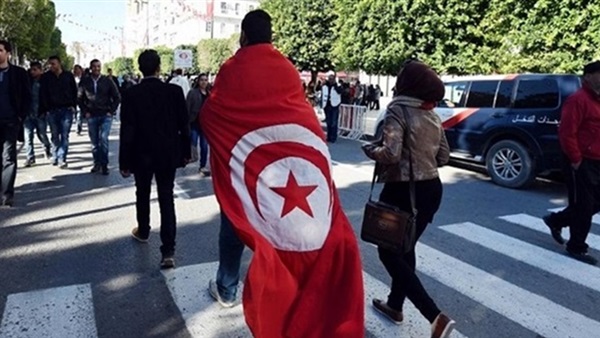After low participation rates in Tunisian legislative elections: July 25 path faces greatest challenge

Tunisia’s Brotherhood-affiliated Ennahda movement is celebrating what it considered a failure in the electoral process that the country witnessed on Saturday, December 17, in which less than nine percent of the total voters participated, according to the Independent High Authority for Elections, as the authority estimated the number at 803,000 people out of a total of nine million registered voters.
Ennahda expressed its happiness with this, as Ali Laarayedh, its leader accused in the case of deporting Tunisian youth to hotbeds of extremism, said in a televised interview with Zitouna TV that the people are waiting for what the current regime will do to improve the country's conditions after Ennahda leaves power.
He added that Ennahda is the “real bearer” of the democratic project, as he described it, saying, “We are ready to reassure the parties.”
The movement thanked the Tunisian people, considering that the low participation rate was a response to the boycott calls launched by many political forces, including Ennahda, as well as the people's objection to the path taken by Tunisian President Kais Saied since July 25, 2021.
During a press conference held on Saturday, December 17, the National Salvation Front called for organizing early presidential elections, justifying this by the fact that the people have given up on the July 25 path by boycotting the elections.
For his part, the head of the Independent High Authority for Elections in Tunisia, Farouk Bouasker, explained the low participation in the elections due to foreign and suspicious funds, considering that they were the first Tunisian elections of this kind.
He added in a press conference that if the previous legal framework for funding had been maintained, the percentages would have been similar to those recorded in previous elections.
A bet on the people... What happened?
From the repeated statements of President Saied and his supporters, the bet was on the people, as they expected that by participating in the legislative elections, all opponents who criticize Saied for what they call “individual rule” would be silenced.
These bets were permeated with some fear, as they came at a time when the Tunisian people could not find basic commodities, in addition to their inability to buy those available due to the high cost, which caused a great state of tension over the situation that some described as unprecedented.
With the low participation revealed by the Independent High Authority for Elections, President Saied is in a real dilemma that he must dismantle to find out the reasons for the lack of participation and whether it is considered a boycott of a political position or the economic conditions.
Confronting Ennahda is threatened
The results of the weak participation in the parliamentary elections are not limited to the strength of the upcoming parliament and its ability to express the will of the people, as they extend to the file of confronting the corruption and terrorism of the Ennahda movement, which has not been completely resolved and is still in the stage of judicial investigations.
Ennahda is trying to evade all the charges against it, foremost of which is the deportation of young people to hotbeds of extremism and money laundering. To date, no final judgment has been issued condemning the movement, while it denies and minimizes all the charges against it.
Following the experience of the recent elections, Ennahda will try to get closer to the people, but Tunisian political writer Nizar Jlidi said in previous statements to the Reference that this is unlikely to happen, stressing that the people will not forget the Brotherhood's crimes against them.
The legislative elections were considered the last leg of the roadmap announced by President Saied at the end of 2021, by which the Tunisian state would have completed its apparatus that disrupted its parliament and then dissolved by the decisions of July 25, 2021.
The last elections were held after amending the election law, which stipulated an individual system for candidacy, not lists, in contrast to the previous elections, which Ennahdha had won by 40%.





